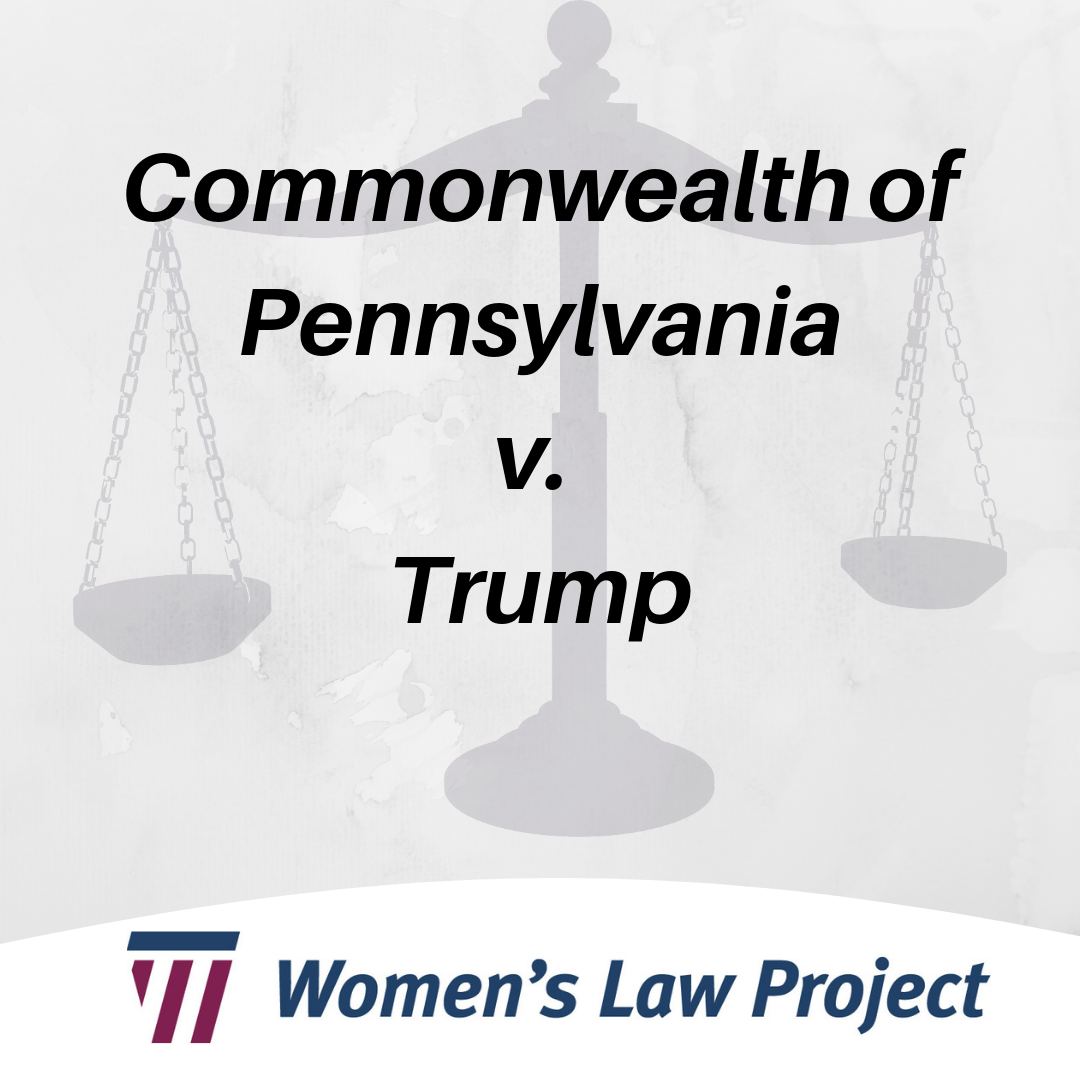On June 7, 2019, attorneys at the Women’s Law Project filed an amicus brief in support of the Pennsylvania Attorney General in Commonwealth of Pennsylvania v. Trump, a federal court challenge to the Trump contraceptive coverage rules that permit employers to refuse to cover birth control based on their personal religious, ethical or moral beliefs.
WLP filed the brief on behalf of itself, Center for Reproductive Rights, Lawyers’ Committee for Civil Rights Under Law, and other equal rights groups.
The rules in question, known as the Religious Exemption Rule and the Moral Exemption Rule, provide virtually limitless exemptions from a mandatory obligation for health plans to provide women with coverage for contraceptive services without imposing cost-sharing requirements.
“Why is the Trump Administration focused on undermining a universally-agreed upon public health goal like equitable contraceptive access?” asked WLP Senior Staff Attorney Susan J. Frietsche. “The Trump Administration is trying to bend the law to undermine women’s health amid a maternal mortality crisis.”
The Rules, issued in November 2018, were scheduled to go into effect on January 14, 2019.
However, they were blocked by a preliminary injunction issued by the United States District Court for the Eastern District of Pennsylvania, the same court in which we filed this brief today.
As Attorney General Shapiro notes, the U.S. District Court for the Eastern District of Pennsylvania has twice held that plaintiffs are likely to succeed on their claims that the Rules violate the Administrative Procedure Act (APA), and has blocked defendants from enforcing them.
By singling out women for disadvantageous treatment, Trump’s rules violate the constitutional principle of equal protection as well as statutory protection against sex discrimination through Title VII of the Civil Rights Act. In addition, they violate the Establishment Clause of the First Amendment by imposing the religious beliefs of employers on their employees. And they violate multiple provisions of the Affordable Care Act.
In our brief, we urge the Court to consider how the rules challenged in this case violate core constitutional guarantees and thereby further entrench the systemic and structural barriers to individual self-determination and equal participation in social, political, and economic life experienced by women—especially women of color, who are disproportionately low-income, and others who face multiple, intersecting forms of discrimination.
Amici are the are leading national and regional civil rights and equal justice organizations that litigate in state and federal courts to protect constitutional rights for all. Center for Reproductive Rights, the Lawyers’ Committee for Civil Rights Under Law, the California Women’s Law Center, GLBTQ Legal Advocates & Defenders, LatinoJustice PRLDEF, Lawyers for Civil Rights, Legal Momentum, Legal Voice, the Mississippi Center for Justice, the National Center for Lesbian Rights, Public Counsel, and the Women’s Law Project.
Case Documents
Amended Complaint for Declaratory and Injunctive Relief (December 14, 2018)
U.S. District Court for the Eastern District of Pennsylvania Opinion (January 14, 2019)
Amici Curiae of Civil Rights Organizations (June 7, 2019)
Media Coverage
October 11, 2017: Philadelphia Inquirer: Pennsylvania sues Trump administration over birth control rollback
December 14, 2018: Philadelphia Inquirer: Pa. Attorney General continues fight against Trump administration birth control coverage rules
January 14, 2019: NBCNews.com: Federal judge in Pennsylvania blocks Trump administration birth control rules
January 14, 2019: Washington Post: Judge blocks Trump effort to roll back birth control mandate nationwide


